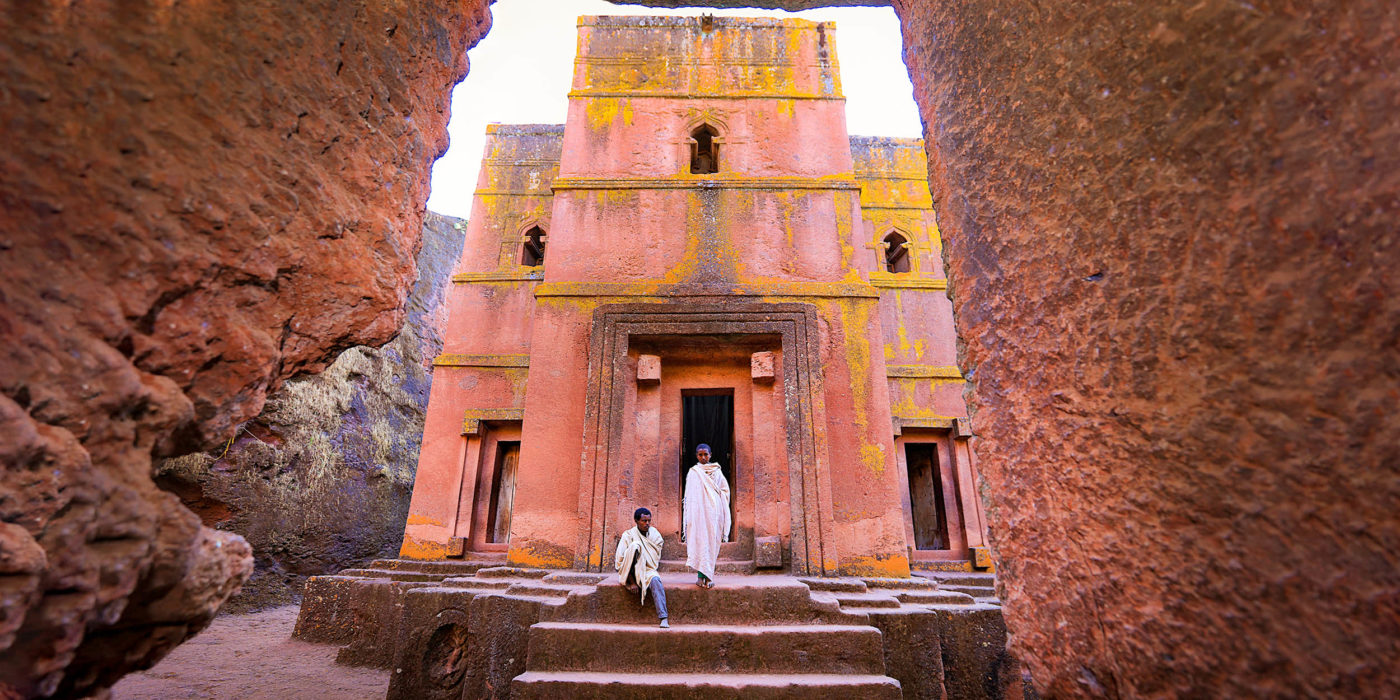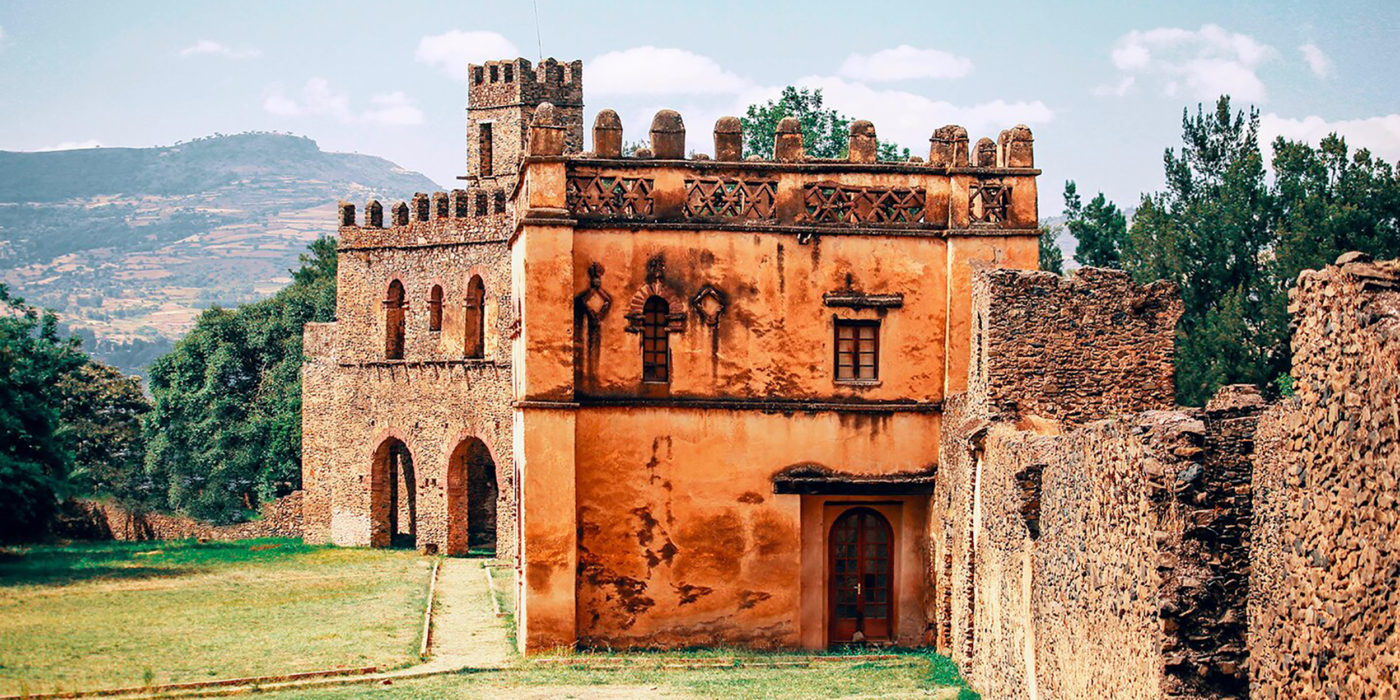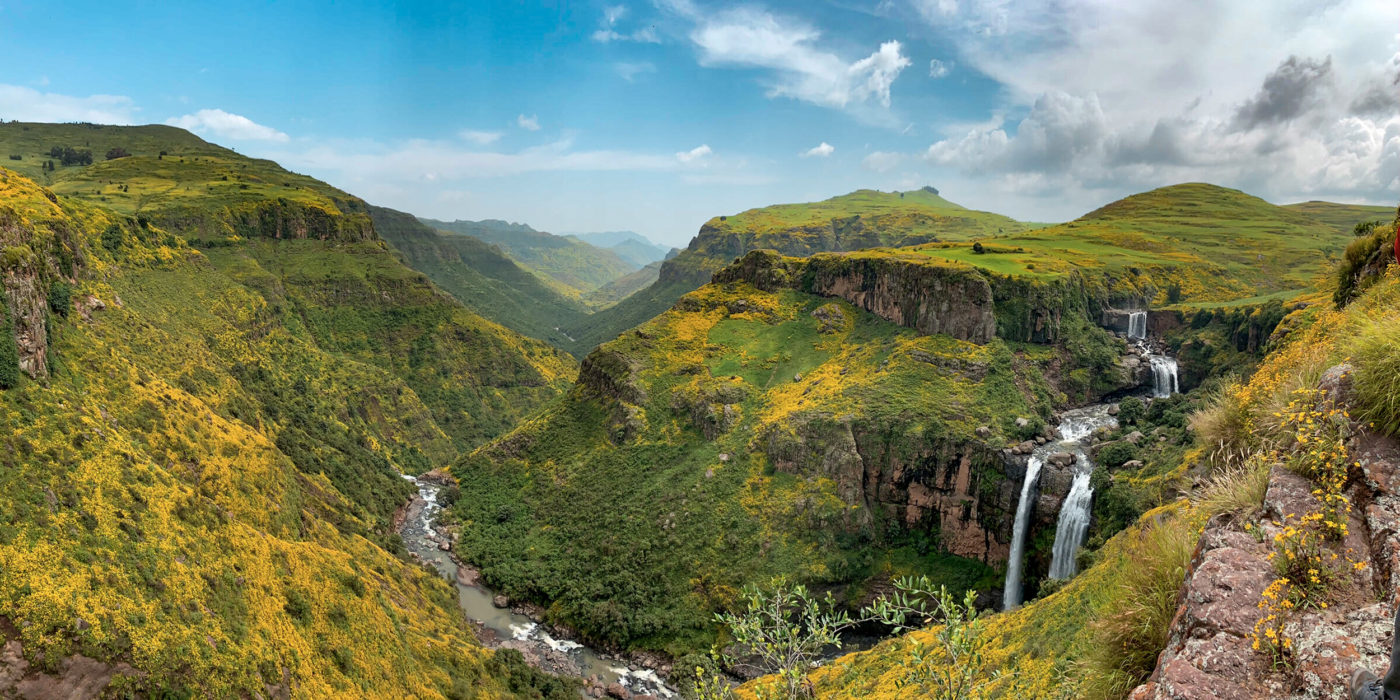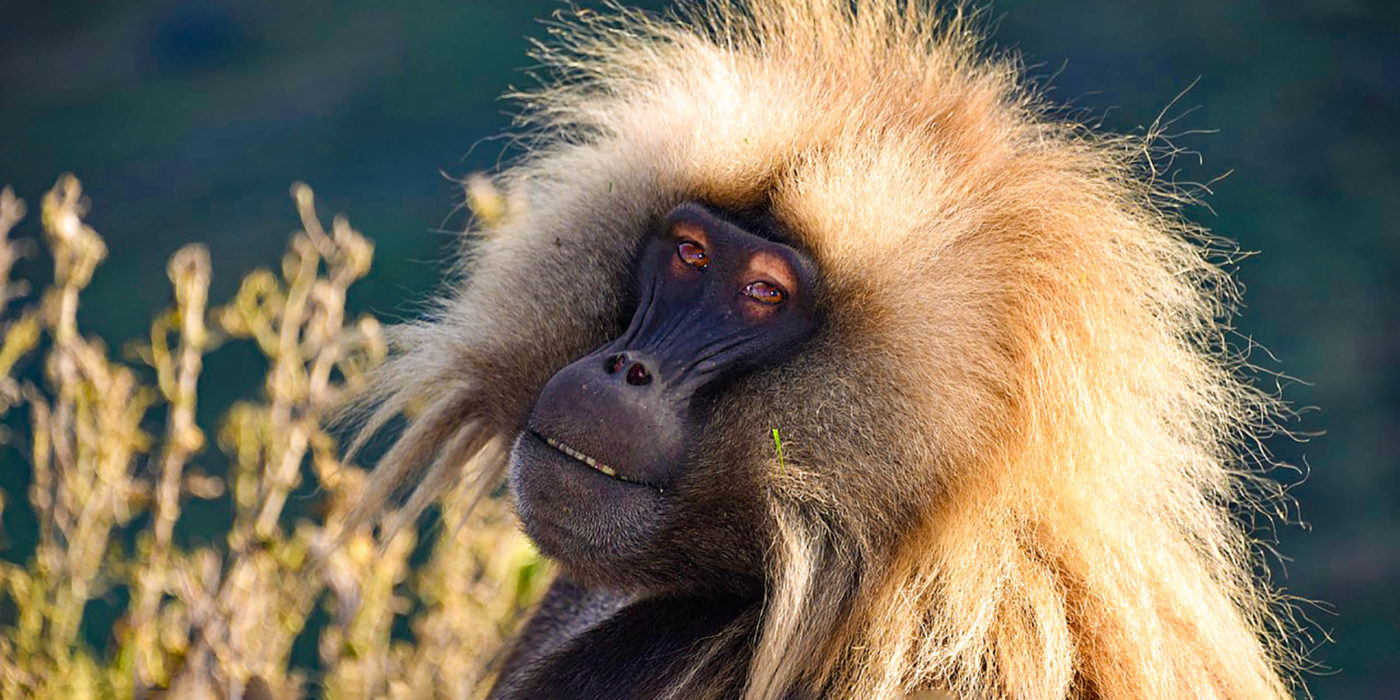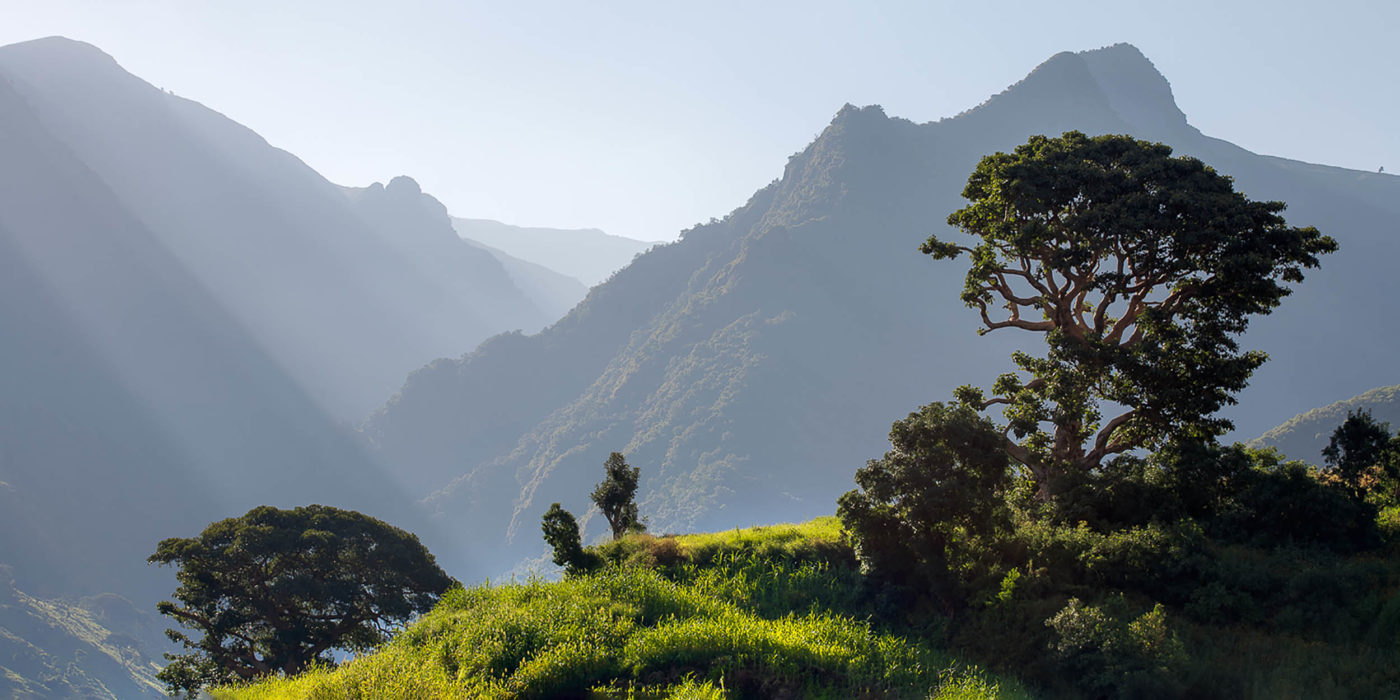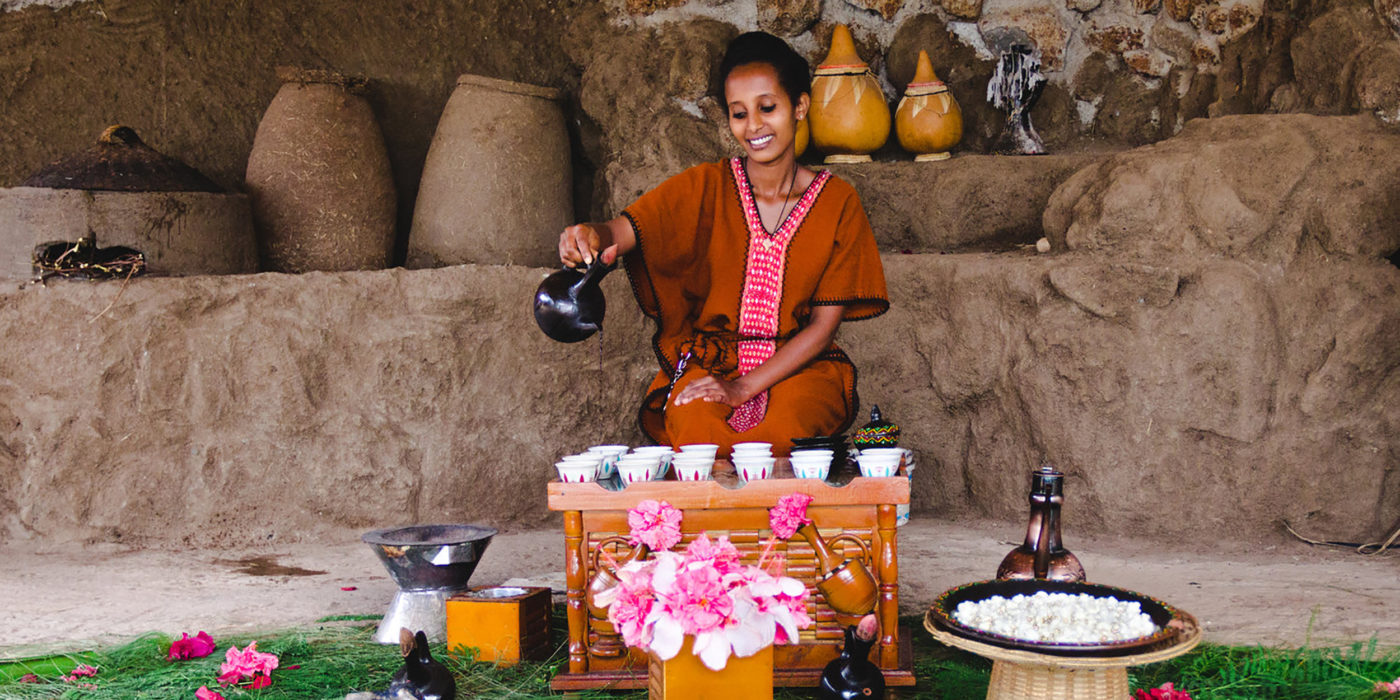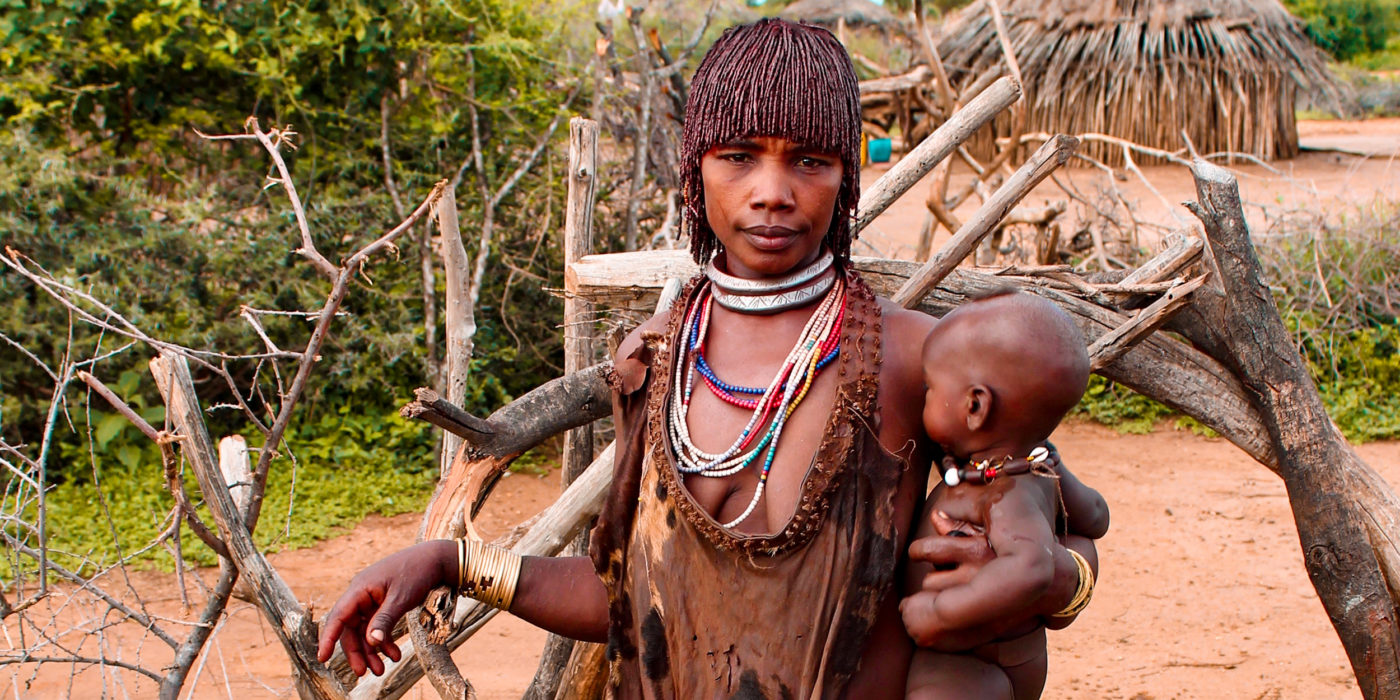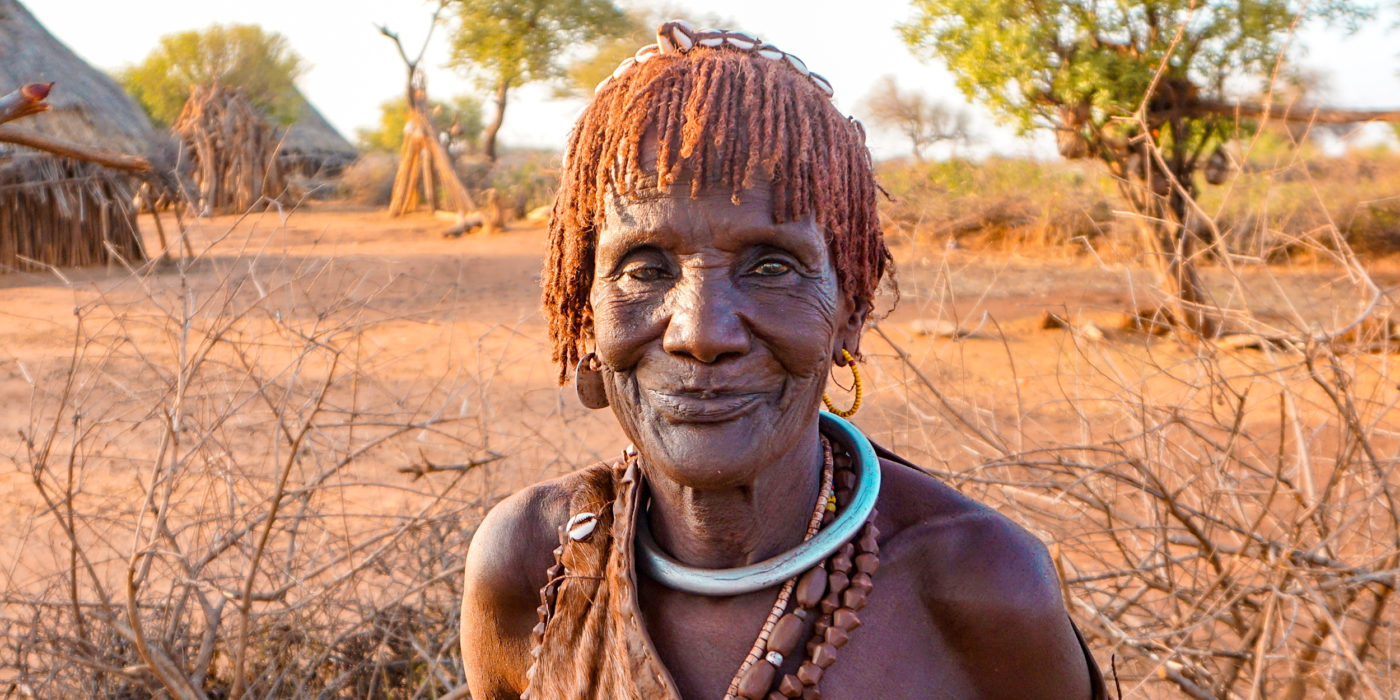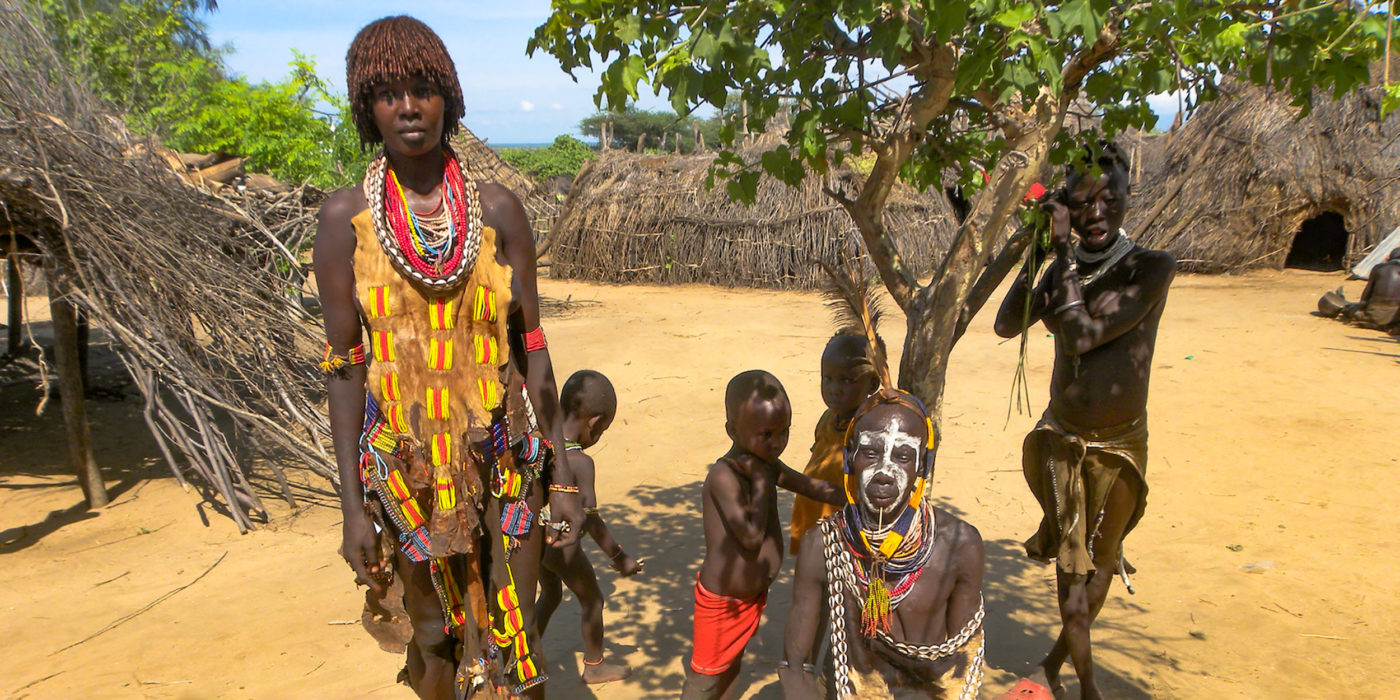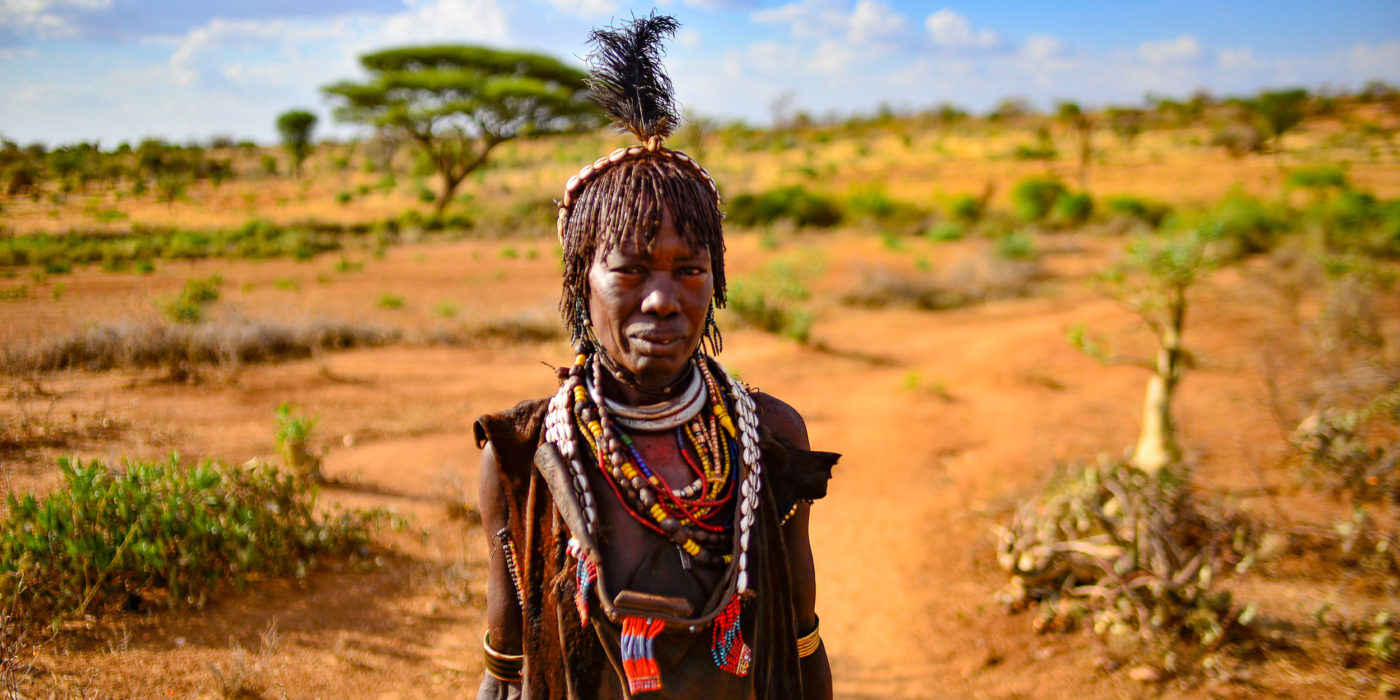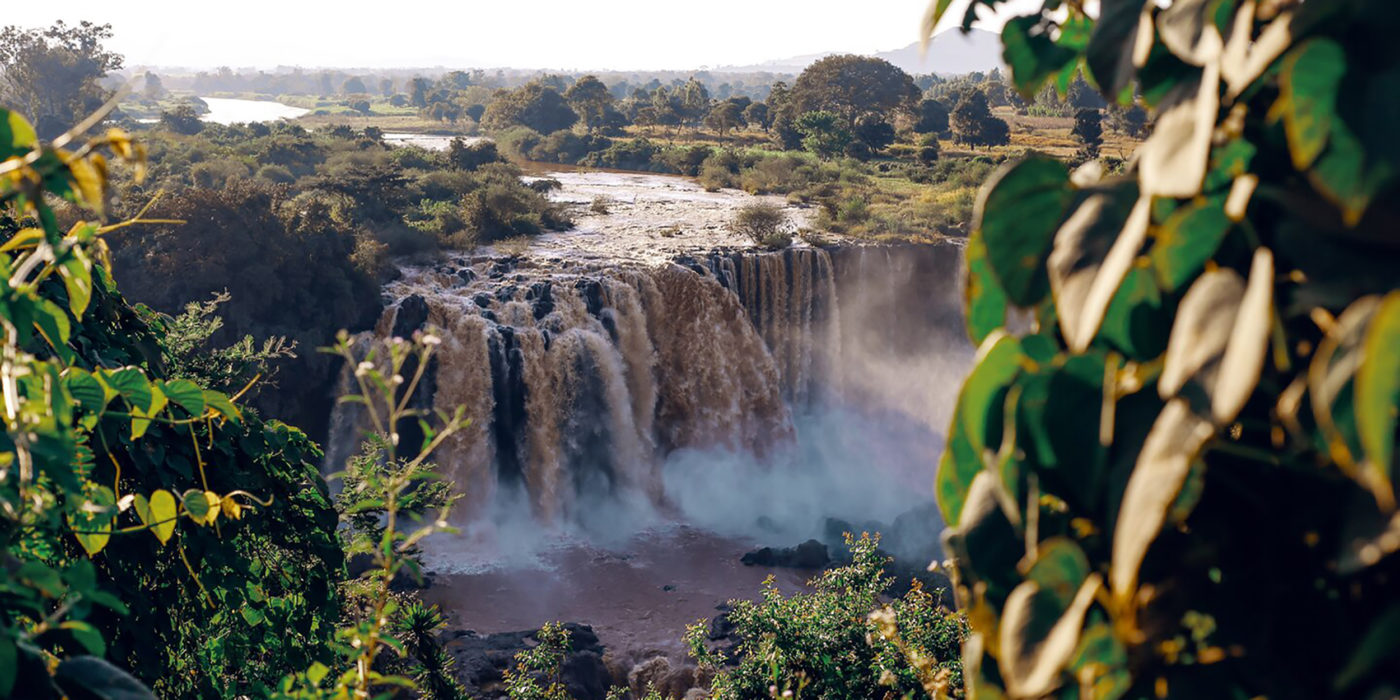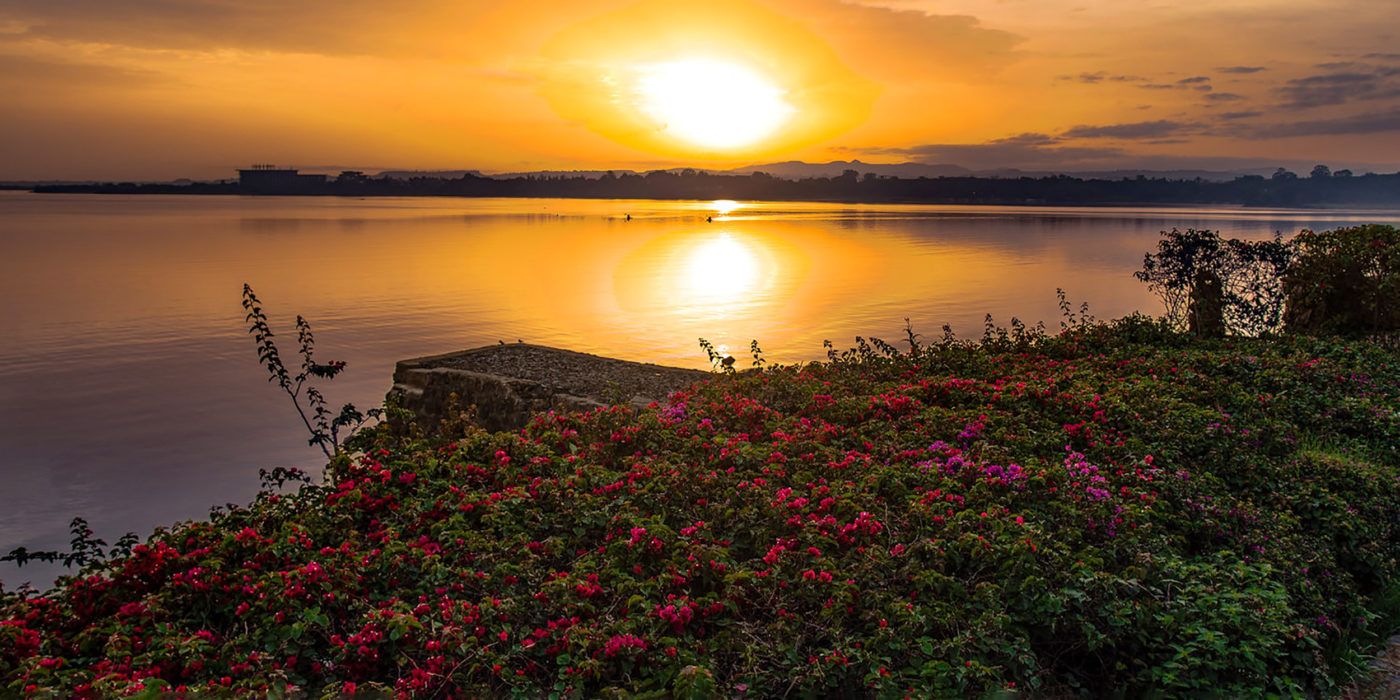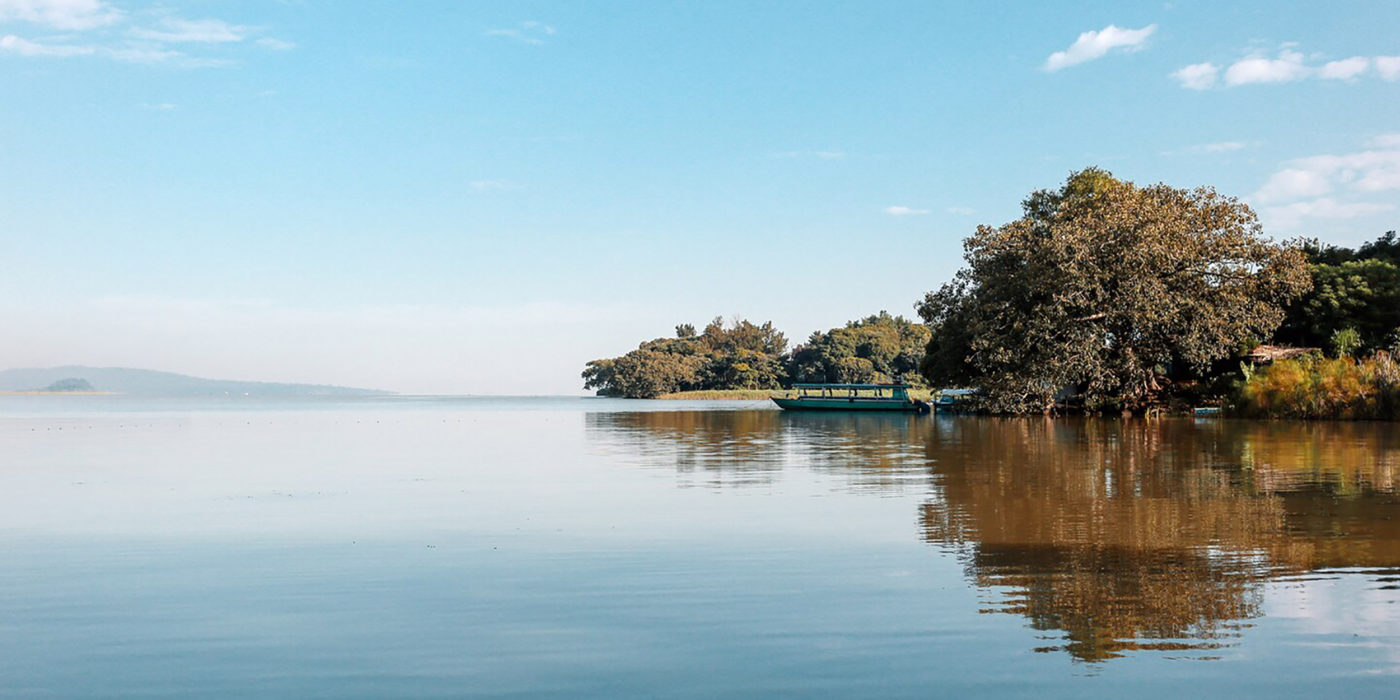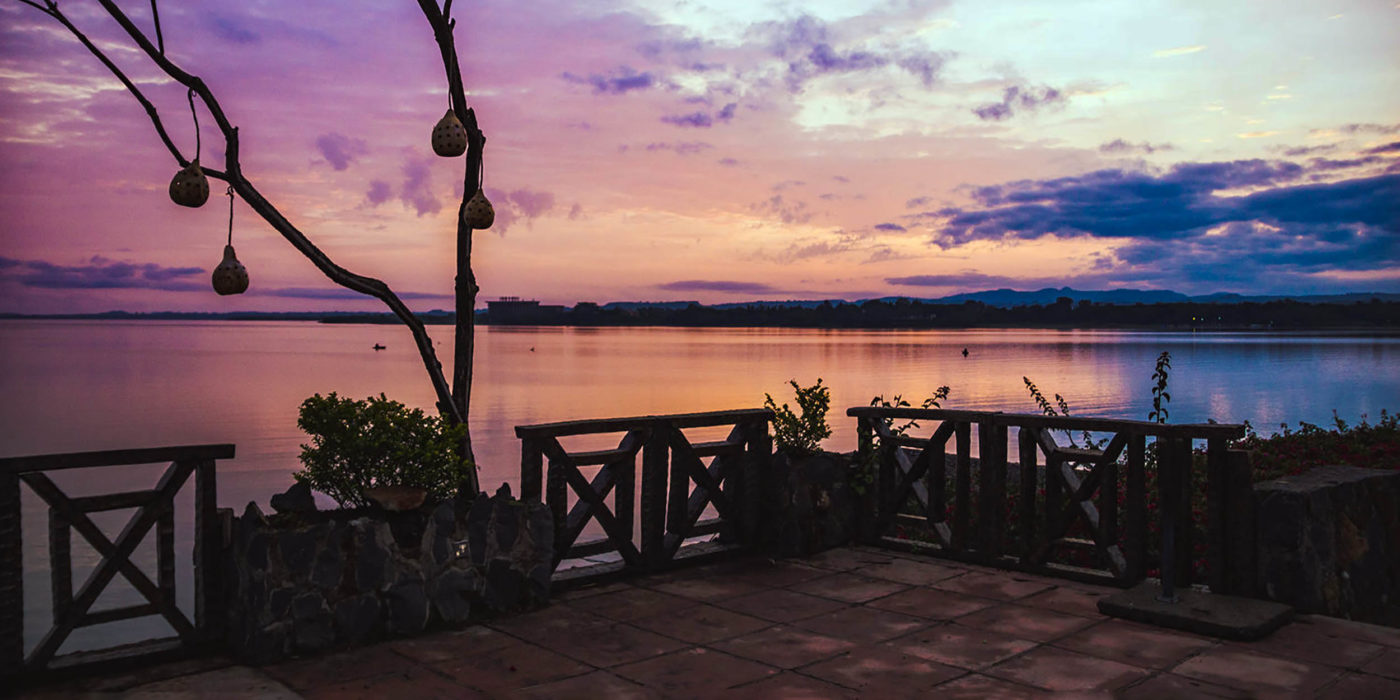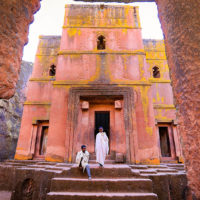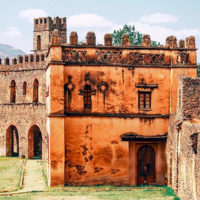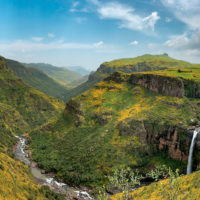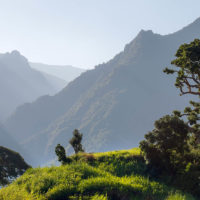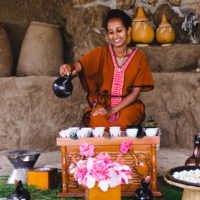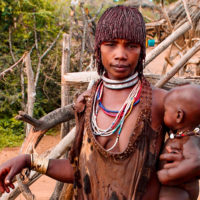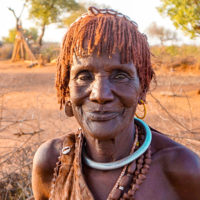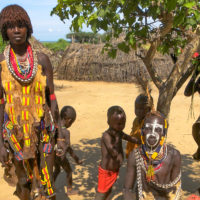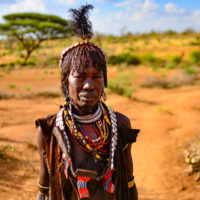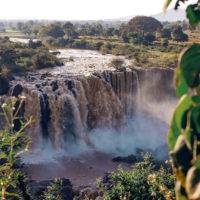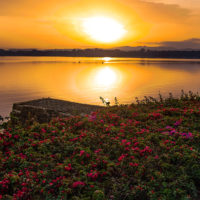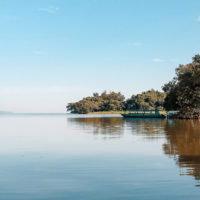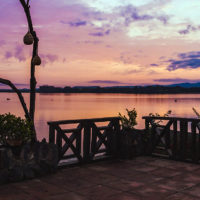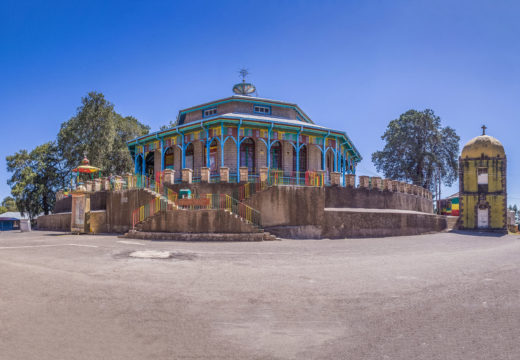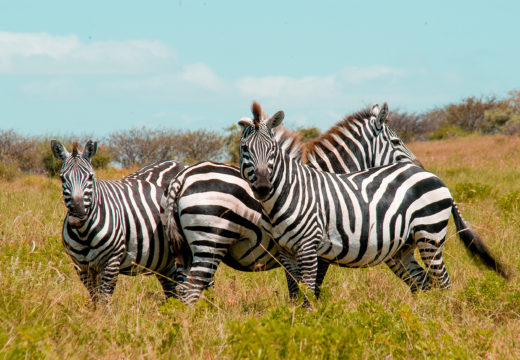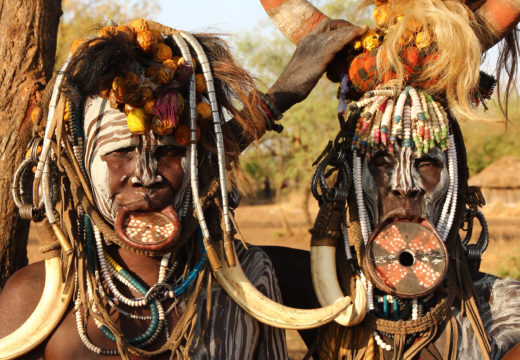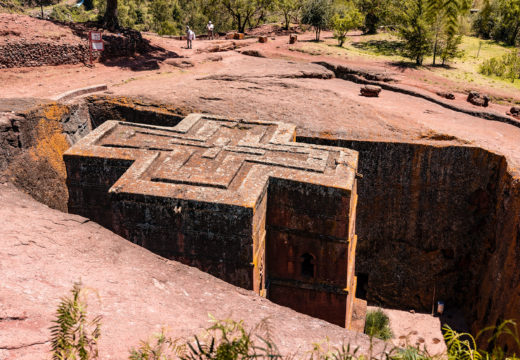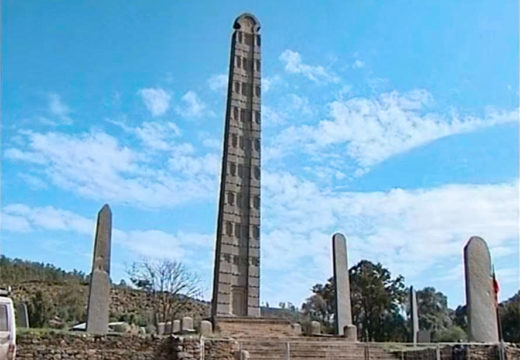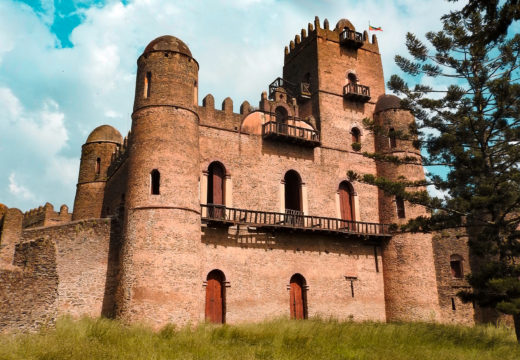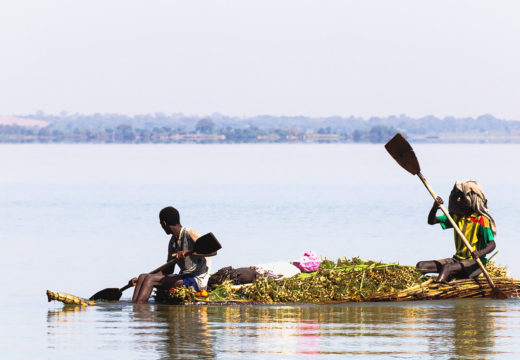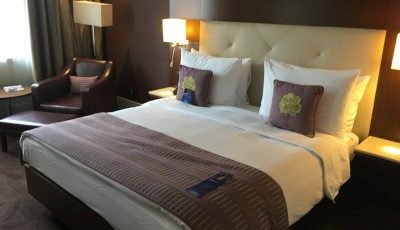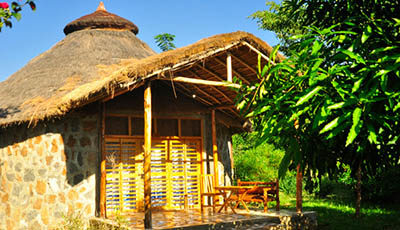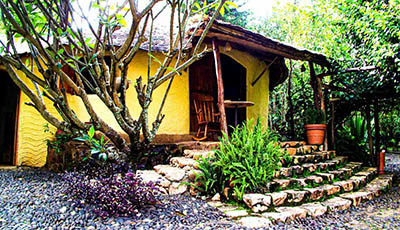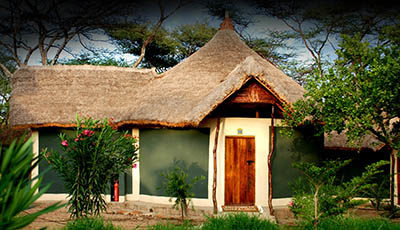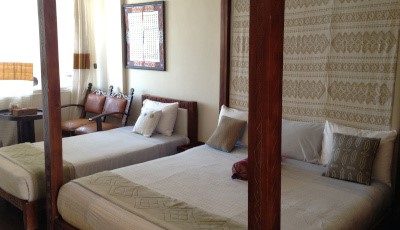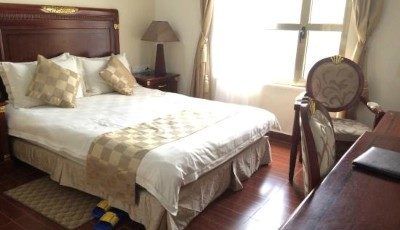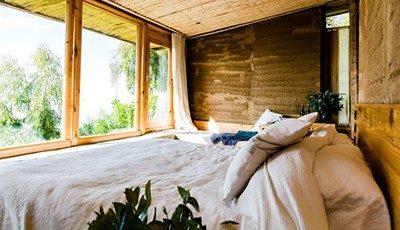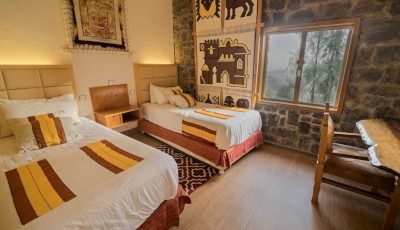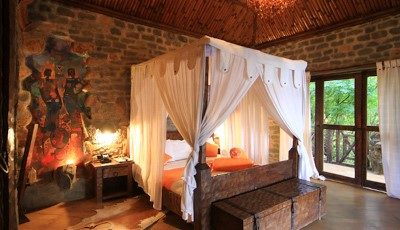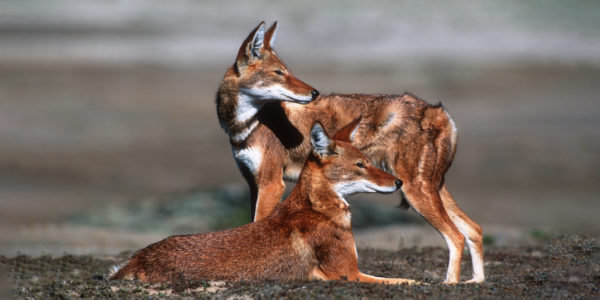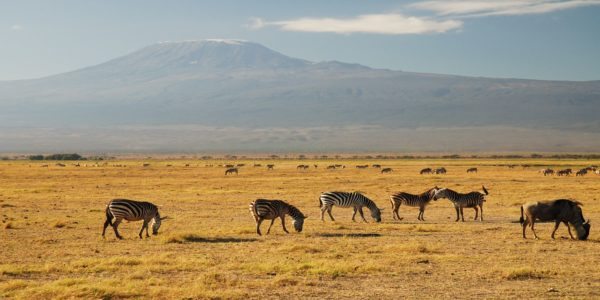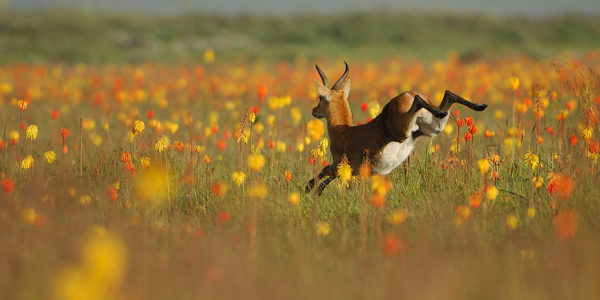Private Tour Highlights
- Visit the magnificent rock-hewn churches of Lalibela, which were hewn out of solid rock between 800 - 1200 AD and are still active houses of worship today.
- Have a cultural experience with the inhabitants of lower Omo River Valley including the Karo people who use ornate body art, intricate headdress, and body scarification to emphasize beauty and status within their community.
- Take a boat cruise on Lake Tana to visit the 14th century Monastery of Ura Kidane Mihret, the most famous of the Zege peninsula monasteries.
- Take in the magnificent scenery and unique flora and fauna of Simien Mountains National Park, referred to as the "Roof of Africa".
- Observe the Gelada Baboon and the breath-taking landscape of the Simien Mountains with a light trek around the area.
- While in Chenek, spot the Walia ibex, and if you are lucky, the Ethiopian Wolf, both endemic species of Ethiopia.
- Savor Addis Ababa's delicious cuisine and enjoy Ethiopia's famed Arabica coffee while exploring the capital city.
Tour Overview
The Culture and History of Ethiopia Tour begins with an introduction to the wilds of Southern Ethiopia in the Great Rift Valley with a boat ride along Lake Como to Azo Gebeya, which many locals refer to as the ‘crocodile market’ where hundreds of crocs, hippos, and pelicans gather. En route, travelers will set off to the Konso region where the Konso people live in a land of low terraced hills, where some of the county’s best coffee is grown.
Next, the tour takes explorers on an excursion to Mago National Park to visit the Mursi village where women like to wear terra cotta on their enormously stretched lower lips and ear lobes, and the men are famous for their hairstyles. Afterward, visitors will meet the main non-nomadic agriculturalist group in the Lower Omo Valley, the Karo. The Karo community is differentiated from neighboring villages by placing a higher emphasis on body and face painting. The tour then continues with a visit with the Hammer peoples, known for their ornate beads and leather, elaborate hairstyles, and thick copper necklaces.
Following spending time with the many local communities, travelers return to Addis Ababa for an introduction to Ethiopia’s archeological history, including a visit to the National Museum where the 3.2 million-year-old remains of the early hominid, Lucy reside. From Addis Ababa, the tour continues to Lalibela. Home to one of Ethiopia’s most sought-after sites, Lalibela is known for its distinct rock-carved churches, especially the subterranean, crossed shaped monolith of Bete Giyorgis.
After exploring the many hand-chiseled churches of the area, travelers will continue to the ancient city of Axum. Marked as an important trading power in the 2nd century AD, Axum is one of the oldest continuously inhabited sites in the world and is thought to be the final resting place of the Ark of the Covenant. Clinging dearly to its history, visitors can walk along its ancient streets and marvel at the centuries-old obelisks.
From Axum, travelers will take to what is known as “the Roof of Africa” to observe the Gelada Baboon and the Simien Mountain’s breathtaking landscape. During the stay in Simien, adventurers will enjoy a guided hike through Ethiopia’s most spectacular and diverse landscapes. After a few days of tranquility, the tour wraps up in Bahir Dar with a boat cruise on Lake Tana.
Inclusions
Exclusions
International airfare (unless specifically included), airport departure taxes that must be paid on-site, gratuities, meals not mentioned, soft drinks and alcoholic beverages with meals, early / late check-out, room service, visa fees/services, and other personal items or services not mentioned.
Package Price: From £$ 7413
Prices shown above are per person. Hotel categories do not adhere strictly to international ratings; Yampu has evaluated the hotels according to destination and availability. Prices include local airfare (where applicable), hotel accommodation including daily breakfast; all transfers with baggage handling, all guided tours in English and all entrance fees.
Please note that prices are subject to change based on availability and seasonality, especially during the holiday season from December 20th through January 5th each year. Please contact a Yampu Travel Specialist for more information on best times to travel.
Trip Type:
All our trips are operated on a private basis unless specified otherwise. This is only a sample itinerary; your Yampu Tour Consultant will personalize this trip for you according to your available dates, interests and type of hotels. This is your trip and we will work on making it perfect!
Tour Itinerary
International Flight to Ethiopia
Overnight International Flight to Addis Ababa, Ethiopia.
Overnight International Flight to Addis Ababa, Ethiopia.

Welcome to Addis Ababa!
Upon arrival to Addis Ababa, you will be met at the airport and transferred to your hotel.
Serving as the capital and largest city of Ethiopia, Addis Ababa is the cultural and historic center of the country. The city's National Museum exhibits numerous prehistoric fossils, including replicas of the famous early hominid, "Lucy." Aside from its fascinating history, visitors will also appreciate Addis Ababa's rich food scene as well as Ethiopia's famed export, Arabica coffee.
Upon arrival to Addis Ababa, you will be met at the airport and transferred to your hotel.
Serving as the capital and largest city of Ethiopia, Addis Ababa is the cultural and historic center of the country. The city's National Museum exhibits numerous prehistoric fossils, including replicas of the famous early hominid, "Lucy." Aside from its fascinating history, visitors will also appreciate Addis Ababa's rich food scene as well as Ethiopia's famed export, Arabica coffee.
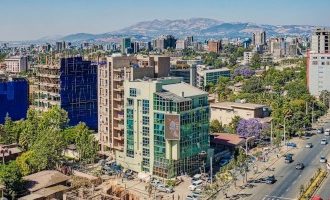
Addis Ababa - Arba Minch
At read more...
At the appropriate time, you will be met at your hotel and transferred to the airport for your flight to Arba Minch.
Upon arrival to Abra Minch, you will be met at the airport and transferred to your hotel in Chencha (48 km / 30 miles, approx. 2 hours). Arba Minch is the largest town in southern Ethiopia, set amongst lush green hills near Lakes Abaya and Chamo. Arba Minch is named for the numerous local springs that produce a groundwater forest. In Amharic, Arba Minch means "forty springs". The town itself is divided into two distinct settlements. Buses and taxis connect Shecha (on higher ground) and downtown Sikela. Shecha is the uptown administrative center. Just two and a half miles away is Sikela, home to the commercial, industrial, and downtown residential areas. On the eastern side of Sikela lies the gate to Nechisar National Park, which covers the isthmus between Lake Abaya to the north and Lake Chamo to the south. Upon arrival, you will drive to Chencha Village, home of the Dorze people. Renowned for their cotton weaving, called Shammas and their distinctive house - towering beehive shaped structures made from woven thatch.
...read less
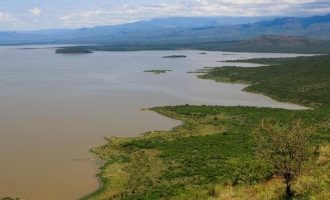
Lake Como Boat Tour
This read more...
This morning, you will enjoy a one-hour boat ride on the lake to Azo Gebeya, the so-called 'crocodile market' - which is not a market at all, but a gathering place for crocodiles and pelican. The attraction of the boat trip includes viewing of hippos and crocodiles from a very close range. Later, you will set off to Jinka en route to the Konso region, declared a UNESCO World Heritage site for its rich culture. The Konso people live in a land of low terraced hills. They are reputed to be one of the hard-working groups in the country. Their elaborately terraced hillside grows some of the county's best coffee. They have an articulate tradition and erect peculiar totems on the grave of their deceased. After your visit in Konso you will continue to Jinka (250 km / 155 miles, approx. 6 hours). ...read less
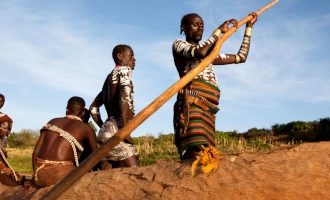
Mursi Village Tour
Take read more...
Take a day excursion to Mago National Park to visit the Mursi village (140 km / 87 miles, approx. 3 hours). The Mursi are one of the most original ethnic groups. They live in very low huts made of straw leaves. The women like to wear terra cotta on their enormously stretched lower lips and ear lobes. The men are famous for their hairstyles.
The tribe is famed for their fierce warrior disposition and wildly decorative appearance, with large circular clay labrets that the women wear in the lower lip. The larger the lip plate, the greater the woman's value when she is married. She removes her plate for eating and sleeping. We may see some women, especially elder women, without their lip plates. They are easily distinguished by how their long, distended lips hang down from their mouths. Visit and drive to Turmi (150 km / 93 miles, approx. 6 hours).
...read less
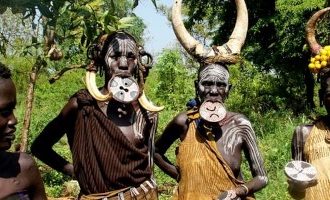
Omoratte & Murulle Excursion
This read more...
This morning, you will take an excursion to Omoratte (150 km / 93 miles, approx. 3 hours) where you will have a cultural experience with the Geleb / Dassenech people inhabitants of lower Omo River Valley. In the afternoon, you will venture to Murulle (130 km / 81 miles, approx. 4 hours) to visit the Karo people, who reside along the banks of the Lower Omo River. The Karo incorporate rich cultural symbolism into their rituals and use ornate body art, intricate headdress, and body scarification to emphasize beauty and status within their community.
This small but lively tribe numbers under 1,000, but they are the main non-nomadic agriculturalist group in the Lower Omo Valley. The Karo are differentiated from neighboring tribes by placing higher emphasis on body and face painting. They paint themselves daily with colored ochre, white chalk, yellow mineral rock, charcoal, and pulverized iron ore - all resources found in this area. Karo body painting is a deep aspect of their culture; they are communicating as well as decorating. The experience of visiting the people of this incredibly rich, proud, yet adapting culture gives amazing insight into Ethiopia's indigenous peoples. Visit and proceed to your hotel. ...read less
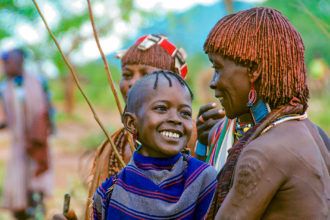
Turmi Hammer Tribe Tour
Today, read more...
Today, you will visit the Hammer people, one of the most beautiful and dignified people in the Omo basin. The women wear elegant leather skirts festooned with tiny pearls. Personal appearance is important to the Hammer, and they are striking indeed: their features and adornments include high cheekbones, elaborate beads and leather, elaborate hairstyles and thick copper necklaces. Afterwards, drive back to Jinka to catch your flight back to Addis Ababa.
Upon arrival to Addis Ababa, you will be met at the airport and transferred to your hotel.
...read less
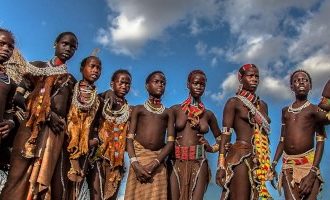
Addis Ababa Historical Sightseeing Tour
Begin read more...
Begin your city tour of Addis with a drive to Mount Entoto. This is a historical place where Emperor Menelik II resided and built his palace when he came from Ankober and founded Addis Ababa. It is considered a sacred mountain and has many monasteries. It is situated at an altitude between 2,600 and 3,100 meters. You will have a magnificent view of the city. Then, drive to the National Museum that houses the nation's artistic treasures as well as many of the most precious archaeological finds. This includes the fossilized remains of early hominids, the most famous of which is "Lucy," the partial skeleton of a specimen of Australopithecus afarensis. The well-known Lucy is said to be 3.2 million years old. After visiting the museum, you will drive to Trinity Cathedral Church. This church is the highest-ranking Orthodox cathedral in Addis Ababa, Ethiopia. It was built to commemorate Ethiopia's liberation from Italian occupation and is the second most important place of worship in Ethiopia, after the Church of Our Lady Mary of Zion in Axum.
This afternoon, you will visit the Ethnological museum set within Haile Selassie's former palace, surrounded by the beautiful gardens and fountains of Addis Ababa University's main campus. Even if you're not normally a museum fan, this one is worth a bit of your time - it's easily one of the finest museums in Africa. Later, you drive to Mercato and visit the largest open market in Africa, where you will drive through the market. Mercato is located covering several square miles and employing an estimated 13,000 people in 7,100 business entities.
...read less
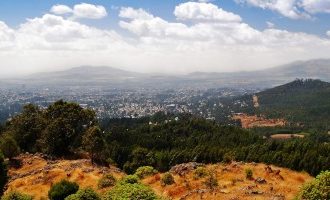
Addis Ababa - Lalibela
At read more...
At the appropriate time, you will be met at your hotel and transferred to the airport for your flight to Lalibela.
Upon arrival to Lalibela, you will be met at the airport and transferred to your hotel. Lalibela, also known as "Africa's Petra", is Ethiopia's crown jewel. It is home to the most famous churches and the scene of many major religious ceremonies.
We will visit the magnificent rock-hewn churches of Lalibela, which are called the "Eighth Wonders of the World". These churches were hewn out of solid rock between 800 - 1200 AD and are still active houses of worship. The churches are carved below ground level, ringed by trenches and courtyards and are arguably Ethiopia's top attraction. They are connected to each other by a tangled maze of tunnels and passages.
You will visit the first group of six churches that lie in rock cradles, one behind the other: Bet Golgotha, Bet Mikael, Bet Mariam, Bet Meskel, Bet Danaghel and Bet Medhane Alem. Bet Medhane Alem, the largest one is built like a Greek Temple.
Later on, you will visit the second group of churches. Bet Giyorgis, possibly the most elegant of all the Lalibela churches, lies somewhat isolated in the southwest part of the village on a sloping rock terrace. It can only be reached through a tunnel. The group of four, south of the Jordan River, comprise of Bet Emanuel, Bet Mercuiros, Bet Abba Libanos and Bet Gabriel - Rufa'el. Bet Emanuel's elaborate exterior is much praised by art historians.
In the afternoon, take an excursion to Yemrehana Kristos, located in a mountain ridge, in the peak of Abuna Yosef. This exquisite church, a masterpiece of Axumit wood and stone construction and renewed for its interior decoration. The walls are subdivided vertically with recessions and projections. ...read less
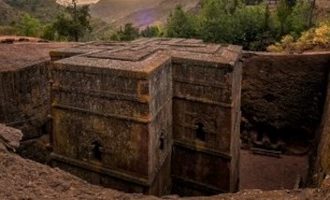
Lalibela - Axum
At read more...
At the appropriate time, you will be met at your hotel and transferred to the airport for your flight to Axum.
Upon arrival to Axum, you will be met at the airport and transferred to your hotel.
Dating from the second century B.C., Axum City reached its height of power between the fourth and seventh centuries A.D., when it controlled most of present-day Ethiopia and, at times, both sides of the Red Sea. Axum was once the center of a great empire, and the seat of learning for the ancient Ge'ez language and literature. Take a city tour that includes the Stelae Park. These famed granite obelisks are relics of this time and have gained UNESCO World Heritage Site status. The tallest, the Great Stele, has fallen and broken into six massive pieces, but when standing, it was 33 meters (108 feet) tall and weighed about five hundred tons. The tallest obelisk still standing at Axum today is about 23 meters (75 feet) tall, still an impressive sight!
We continue the city tour, visiting St. Mary's Church and the Sanctuary Chapel which is the repository of the Ark of the Covenant; the Coronation Yard; King Ezana's Park; and the "Queen of Sheba" ruins, once a massive palace with finely mortared stonewalls, deep foundations, and its own impressive drainage system, believed to be the oldest building in Axum. ...read less
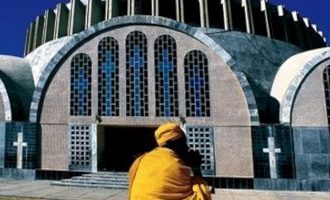
Axum - Gondar - Simien
At read more...
At the appropriate time, you will be met at your hotel and transferred to the airport for your flight to Gondar.
Upon arrival to Gondar, you will drive to Simien Mountain National park (140 km / 87 miles, approx. 5 hours). En route, you will observe the magnificent scenery with unique flora, the first segment of the Simien Mountains National Park - "Roof of Africa". Upon arrival you will check-in to the lodge and you will proceed to drive to Sanqaber where you will be able to encounter birds like Lammergeyer and the endemic Gelada Baboon. ...read less

Chenek Sightseeing Tour
Today, you will drive to Chenek. You will have beautiful views on both sides of the escarpment ridge. This is a great place to spot the Walia ibex, and if you are lucky, the Ethiopian Wolf. Tucked away behind a hillock on a mini plateau is a romantic spot with a bench, looking back to Imet Gogo and Inatye.
Today, you will drive to Chenek. You will have beautiful views on both sides of the escarpment ridge. This is a great place to spot the Walia ibex, and if you are lucky, the Ethiopian Wolf. Tucked away behind a hillock on a mini plateau is a romantic spot with a bench, looking back to Imet Gogo and Inatye.
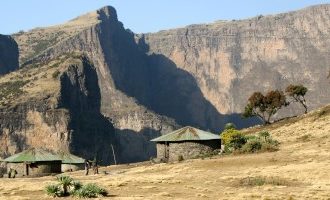
Trek to Simien Mountains with Gondar Sightseeing Tour
After read more...
After having breakfast, you will sight the morning view of the Simien Mountains and do a light trek around the area, to observe the Gelada Baboon and the breath-taking landscape. In the afternoon you will drive to Gondar, a town founded in 1636 by the great Emperor Fassiladas. Set in a landscape of incomparable beauty, it was the Royal Capital of Ethiopia. Visit the impressive castles and churches built by Emperor Fassiladas and his descendants.
Later proceed to the fascinating Debre Birhan Selassie Church, with its walls and ceilings decorated with scenes of Biblical lore and medieval history.
...read less
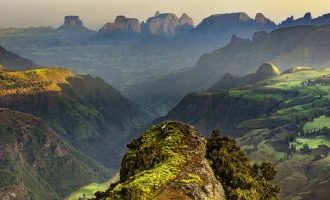
Gondar - Bahir Dar - Blue Nile Falls
This morning, you will drive to Bahir Dar. Upon arrival, you will be met and transferred to your hotel. In the afternoon, you will drive to the village of Tis Isat to see the Blue Nile falls.
(Please be informed that due to the newly constructed electric dam in the vicinity the water level of the falls could be very minimal.)
This morning, you will drive to Bahir Dar. Upon arrival, you will be met and transferred to your hotel. In the afternoon, you will drive to the village of Tis Isat to see the Blue Nile falls.
(Please be informed that due to the newly constructed electric dam in the vicinity the water level of the falls could be very minimal.)
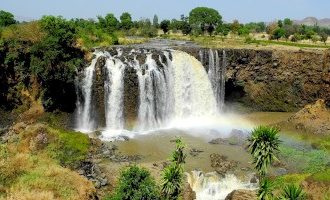
Lake Tana Cruise Tour
This morning, you will take a boat cruise on Lake Tana to visit the 14th century Monastery of Ura Kidane Mihret, the most famous of the Zege peninsula monasteries with a very beautiful painted maqdas and a priceless collection of crosses and crowns. After the visit, you will be transferred to the airport for your flight to Addis Ababa.
Upon arrival to Addis Ababa, you will be met at the airport and transferred to your hotel.
This morning, you will take a boat cruise on Lake Tana to visit the 14th century Monastery of Ura Kidane Mihret, the most famous of the Zege peninsula monasteries with a very beautiful painted maqdas and a priceless collection of crosses and crowns. After the visit, you will be transferred to the airport for your flight to Addis Ababa.
Upon arrival to Addis Ababa, you will be met at the airport and transferred to your hotel.

International Flight Home
At the appropriate time, you will be met at your hotel and transferred to the airport for your flight home.
At the appropriate time, you will be met at your hotel and transferred to the airport for your flight home.

Addis Ababa, Ethiopia
Arba Minch, Ethiopia
Jinka, Ethiopia
Turmi, Ethiopia
Lalibela, Ethiopia
Axum, Ethiopia
Gondar, Ethiopia
Semien Mountains, Ethiopia
Bahir Dar, Ethiopia
Places You'll See
-
Addis Ababa
Ethiopia’s sprawling capital city, located along the Great Rift Valley, provides travelers with a fantastic introduction to the country’s culture and history. History buffs will appreciate hundreds of prehistoric fossils at the National Museum where replicas of the famous early hominid, “Lucy,” reside. Foodies can indulge in Addis Ababa’s plentiful culinary scene and participate in an important part of Ethiopian culture with a delicious coffee ceremony.
-
Arba Minch
Located in Ethiopia’s Great Rift Valley, formed over 22 million years ago, Arba Minch was founded in 1960 as the capital of the former province of Gamo-Gofa. It’s rich, green environment and wildlife makes it East Africa’s hidden gem for travelers seeking to connect with nature. The main attraction in Arba Minch is Nechisar National Park, an African wonderland, where visitors can easily come across gazelles, zebras and baboons.
-
Jinka
Located in the hills of the Tama plains, the market town of Jinka is the largest in the region. Though services may be limited due to its remoteness, the town offers needed comforts for those seeking to visit the nearby Mursi tribes, famous for their massive lip adornments. Visitors will also appreciate Jinka’s proximity to Mago National Park where lion, giraffe, leopard and elephants can be seen. If lucky, visitors may even witness the rare black rhino.
-
Lalibela
Known for its distinct rock-carved churches, Lalibela is one of Ethiopia’s most sought-after sites. Dating back to the 12th and 13th centuries, the most well-known of the subterranean monoliths are Bete Medhane Alem and the cross-shaped Bete Giyorgis. The eleven churches of the area were carved entirely by hammer and chisels, complete with windows and detailed columns and roofs all connected by underground tunnels. The creations are still used for ceremonies, vigils, and processions today.
-
Axum
Once a powerful kingdom during the Christian era, Axum is one of Africa’s oldest continuously inhabited sites and is well known for its tall obelisks that still stand today, some reaching 33m tall. Axum is also thought to be the final resting place of the Ark of the Covenant within the Chapel of the Tablet, the holiest site in Ethiopia.
-
Gondar
The royal and historical city of Gondar is well known for its royal complex of ancient castles and palaces of numerous architectural styles dating back to the 17th century. Located north of Lake Tana and just south of the Simien Mountains, Gondar serves as the perfect stopover between the two destinations.
-
Bahir Dar
With its charming lake side views, the city of Bahir Dar has long served as the gateway to both the massive Tana Lake and the impressive Blue Nile waterfall. Keeping out an eye for hippos and crocodiles, visitors can cruise along the waters to the many islands in Tana in search for ancient churches and monasteries.
Media Gallery
